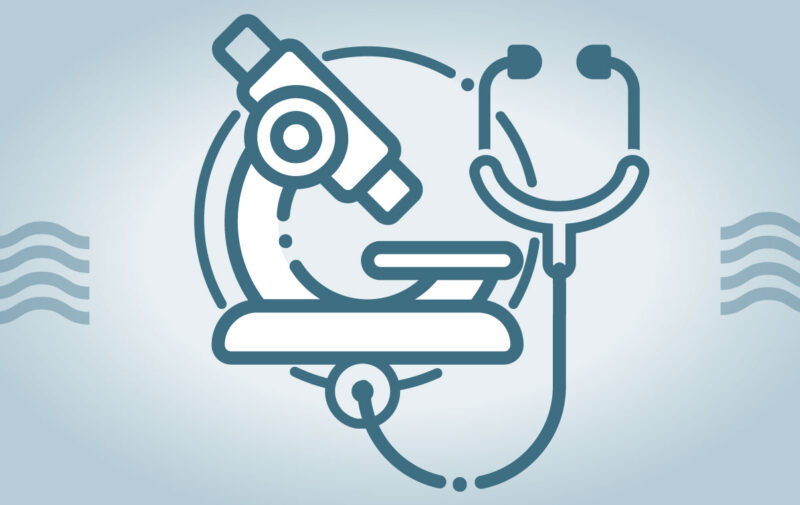
New Investigator Program
Identifying the Mechanisms of Nerve Regulation of Heart Regeneration
Outcome Report
Awarded in
2018
Heart failure continues to be a major health issue in the United States, characterized by 6 million adults affected in the years 2015-2018, according to the American Heart Association. Ischemic injury is caused by the absence of or diminished flow of blood, which can lead to heart disease and heart failure that affects the function of the heart by reducing its ability to pump blood effectively. This project explored new strategies to repair the adult human heart following injury caused by heart disease, which can cause irreversible loss of part of the heart muscle. The research team identified mechanisms that occur in heart regeneration in newborns that could be applied to adult hearts in order to aid in cardiac regeneration. These data support the possibility of people regaining cardiac function after injury.

Collaborative Health Sciences Program
Testing Effectiveness of a Community Resource Navigation Intervention to Enhance Health Professional Education, Reduce Unmet Social Needs, and Improve Patient Health
Awarded in
2018
Patients with unmet social needs —such as housing and food insecurity —need to be paired with available community resources. At two UW Health clinics since 2016, student navigators havehelped connect patients with resources. This study will determine whether student navigators’ training and experience enhances their inter-professional development.

New Investigator Program
Kinetochore Integrity and Cancer
Outcome Report
Awarded in
2018
Studies have implicated the failure of proper chromosome segregation, a process that is critical for cell proliferation and for maintaining life in all organisms, in both cancer and birth defects. This project explored the scientific premise that the kinetochore, a protein structure that forms during cell division, ensures proper chromosome segregation and prevents errors in mitosis.
This project provided fundamental insights into cancer and developmental diseases by yielding new understanding of kinetochore functions. Through the work completed during this grant period, the researchers were able to make progress on developing a novel super-resolution imaging methodology which is not only well-suited to studying kinetochore dysfunction, but also can be utilized for broad research fields.

New Investigator Program
Investigating Retention in Care to Address Healthcare Disparities in Lupus: A Wisconsin Lupus Cohort
Outcome Report
Awarded in
2016
Lupus — an autoimmune disease that causes inflammation and organ damage — disproportionately affects patients of color and those of low socioeconomic status, who also experience higher rates of associated kidney disease and early death. Ensuring that patients get regular care could help keep symptoms in check, but retention predictors in lupus care are poorly understood.
This study defined retention in care for different demographic groups in Wisconsin, finding that those from the most disadvantaged neighborhoods were the most at-risk of ~60% lower retention in care. The insights generated from this research have the potential to help providers reduce lupus outcome disparities in the future.

New Investigator Program
Defining Host-Microbiome Interactions in Diabetic Wound Healing
Outcome Report
Awarded in
2018
In Wisconsin, 750,000 people live with diabetes, and 25 percent of those individuals will develop a diabetic foot ulcer (DFU), a common complication of diabetes, in their lifetime. DFUs can remain open for a long time, and it can be difficult to predict which of these wounds will respond to treatment and heal or require amputation. Wound tissue supports the colonization of a diverse community of microbes referred to as a microbiome. The microbiome in the wound tissue is thought to sustain inflammation which impairs healing and tissue repair. There is a critical, unmet need to develop methods that predict if diabetic wounds will heal in response to treatment, or if they will remain open and healing will be stalled due to a complex microbiome. In this study, researchers hypothesized that the wound microbiome interacts with host healing pathways and genes that control tissue repair. Ultimately, they found that anaerobic bacteria species, which can survive and grow with no oxygen, are more abundant and transcriptionally active in the microbiome of persistent and amputated wounds. Therefore, anaerobic bacteria may serve as a predictive biomarker of wound healing.
The research team has received a $26,000 Wisconsin Alumni Research Foundation (WARF) Technology Accelerator Grant and a $2 million NIH grant to expand their work.

Collaborative Health Sciences Program
Winning the War on Antibiotic Resistance in Wisconsin: The WARRIOR Study
Outcome Report
Awarded in
2015
Antibiotic resistance makes drugs less effective at treating infections, which can be very dangerous. This study explored the role that dietary fiber intake and the diversity of microorganisms in the gut may play in reducing the risk of colonization by multidrug resistant organisms (MDROs).
The study found higher rates of MDRO colonization in older, low-income, and urban-living individuals and that increased dietary fiber intake may be associated with slightly lower rates of MDRO gut colonization. Further study using leveraged grant funding in underway.

Collaborative Health Sciences Program
Genetic Susceptibility to Infection in Wisconsin Hmong
Outcome Report
Awarded in
2015
In Wisconsin, people of Hmong ancestry are infected by a particular fungal lung disease at rates up to 100 times higher than people of European ancestry, a concerning public health disparity.
The researchers identified the genetic basis for susceptibility to the fungal infection in people of Hmong ancestry, providing new opportunities for treatment and education.

COVID-19 Response Grant
Wisconsin Real-time Emergency Department Surveillance and Responsive Training (WIRED-RT)
Outcome Report
Awarded in
2020
The COVID-19 pandemic highlighted the need for detailed and timely information in making public health and operational decisions. This project aimed to develop an advanced COVID-19 syndromic surveillance system using electronic health records (EHR) and predictive analytics to provide just-in-time training for health care providers. Researchers successfully developed data pipelines from UW Health emergency department (ED) EHR data and validated them at Marshfield Clinic. Analysis of the data revealed an increase in acute respiratory infection (ARI) cases during the COVID-era, and predictive models performed well in predicting ARI arrivals and boarders (patients admitted to the hospital who remained in the ED for a minimum or four hours after admission). The Wisconsin Real-time Emergency Department Surveillance and Responsive Training (WIRED-RT) COVID-19 Simulation Curriculum Toolkit was developed to help health care teams prepare for surges in cases, focusing on key care scenarios.

COVID-19 Response Grant
Leveraging Social Networks and Trusted Community Influencers to disseminate an accurate and up-to-date understanding of COVID-19 in Black, Latinx and American Indian Communities
Outcome Report
Awarded in
2020
The overarching goal of this project was to disseminate accurate and up-to-date information on COVID-19 to Black, Latinx and Native American communities in Wisconsin through trusted community influencers. The project team, including a media specialist and community influencers, created and shared over 400 accurate and accessible posts with the Black, Latinx, and Native American communities in Wisconsin. Additionally, social media connections were made with 14 additional community networks between the three target communities.

New Investigator Program
Community-Based Continence Promotion: Mind over Matter; Healthy Bowels, Healthy Bladder
Outcome Report
Awarded in
2016
Most older women in Wisconsin experience incontinence, which impacts quality of life, but they may not seek care due to stigma. The “Mind over Matter: Healthy Bowels, Healthy Bladder (MOM)” workshop teaches women skills to improve symptoms without a medical professional.
Participants in the MOM workshop reported significant improvement in both bladder and bowel symptoms. Since the trial, more than a dozen additional MOM workshops have taken place and more widespread workshops and trainings are planned for 2020, in partnership with the Wisconsin Institute for Healthy Aging (www.wihealthyaging.org).